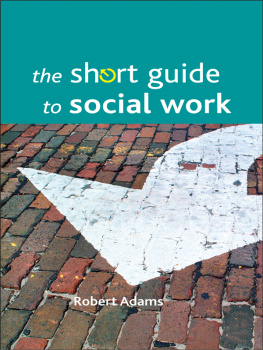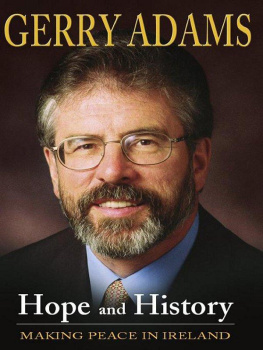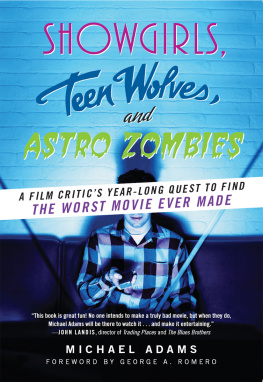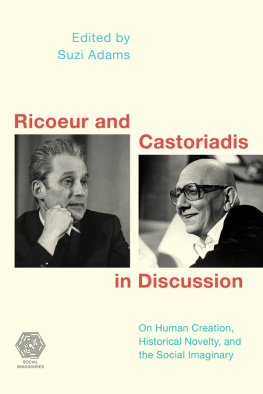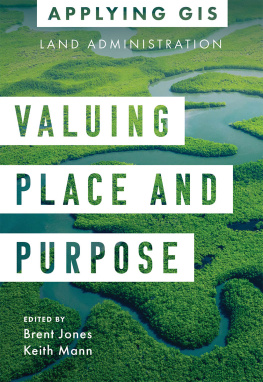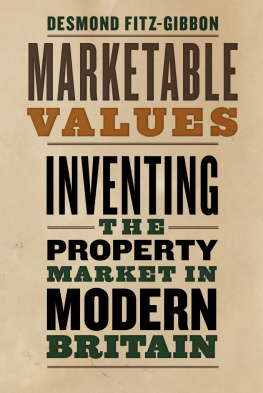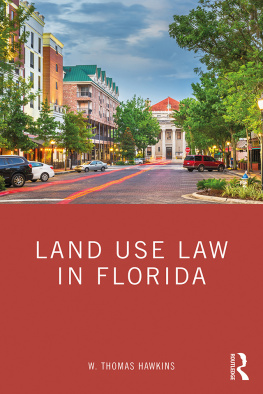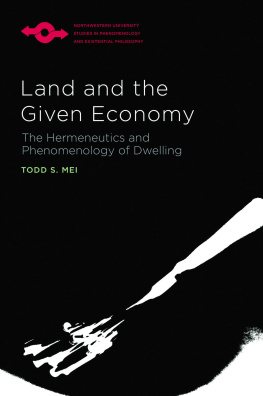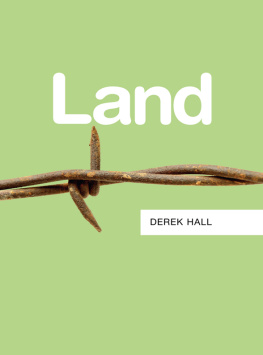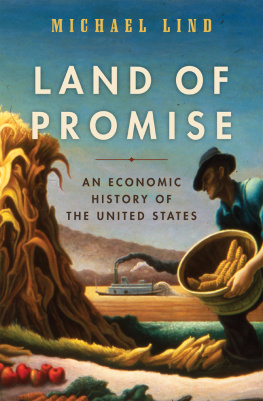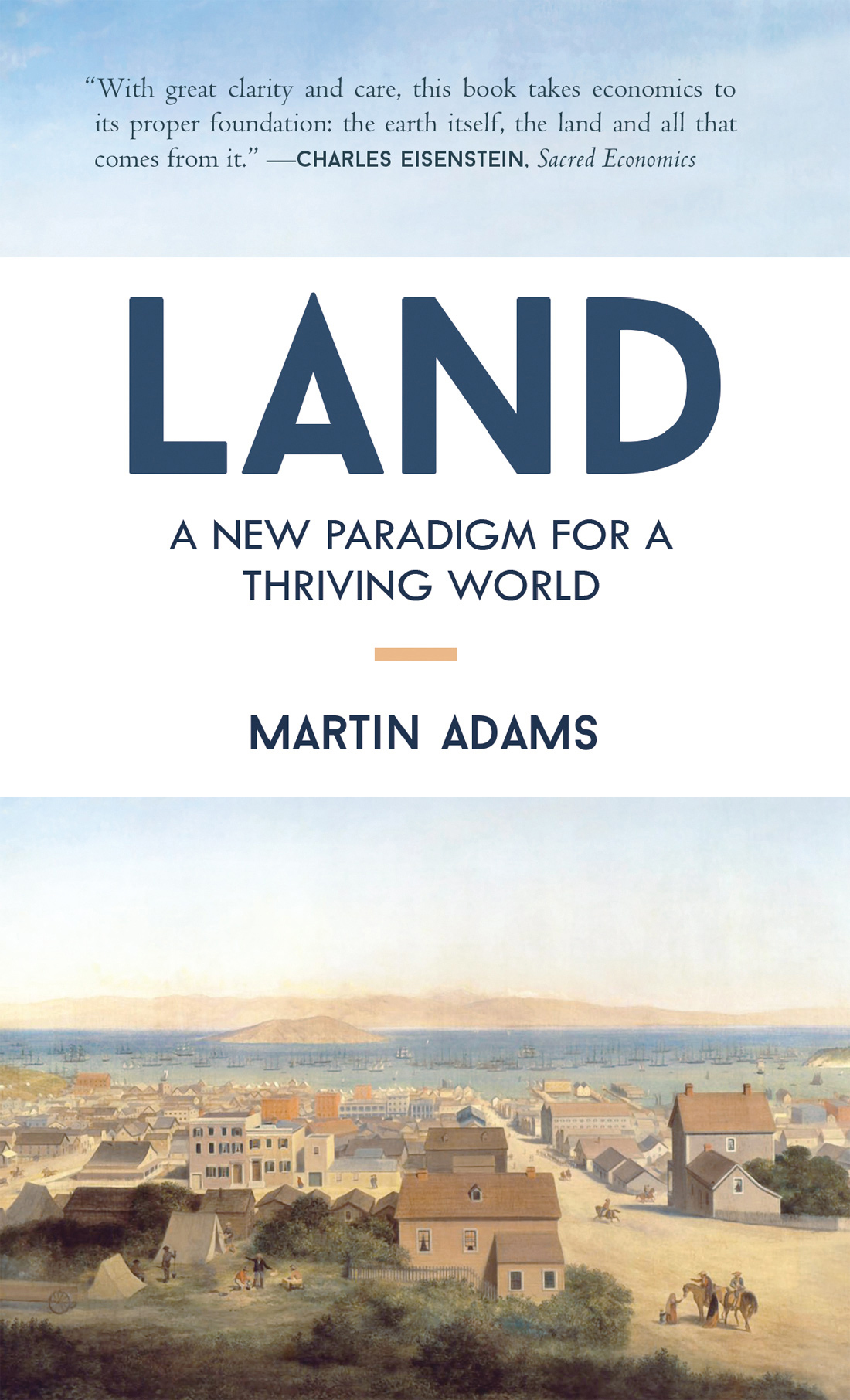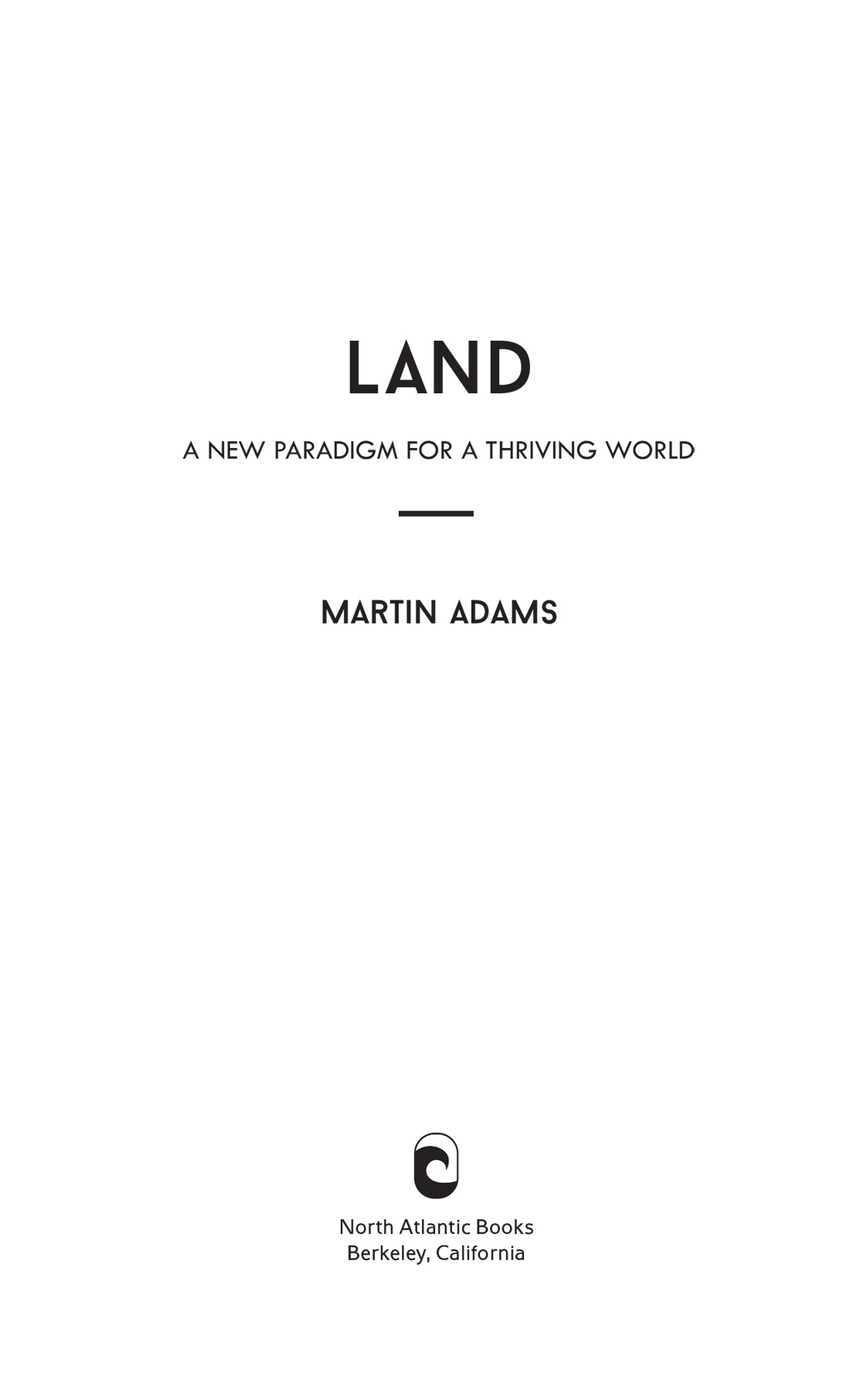Copyright 2015 by Martin Adams under a Creative Commons copyright (CC BY-NC-ND 3.0). For more information about this Creative Commons license, please visit: http://CreativeCommons.org.
North Atlantic Books
P.O. Box 12327
Berkeley, California 94712
Cover art: San Francisco in July, 1849 , by George Henry Burgess
Cover and book design by Jasmine Hromjak
Printed in the United States of America
Land: A New Paradigm for a Thriving World is sponsored and published by the Society for the Study of Native Arts and Sciences (dba North Atlantic Books), an educational nonprofit based in Berkeley, California, that collaborates with partners to develop cross-cultural perspectives, nurture holistic views of art, science, the humanities, and healing, and seed personal and global transformation by publishing work on the relationship of body, spirit, and nature.
Neither the author nor the publisher of this work accept any liability for any investment or tax decisions made on the basis of the information contained herein; this work does not constitute financial or tax advice and should not be taken as such.
North Atlantic Books publications are available through most bookstores. For further information, visit our website at www.northatlanticbooks.com or call 800-733-3000.
Library of Congress Cataloging-in-Publication Data
Adams, Martin, 1979
Land : a new paradigm for a thriving world / Martin Adams
pages cm.(Sharing the earth)
Summary: Sources the underlying causes of wealth inequality, social decline, and environmental destruction to the ownership of land as a basis for wealthProvided by publisher
eBook ISBN: 978-1-58394-921-4
Trade Paperback ISBN: 978-1-58394-920-7
1. Land use. 2. Wealth. 3. Sustainable development. 4. Equality. I. Title.
HD156.A33 2014 333.3--dc23
2014032109
v3.1
To each of us, with love.
CONTENTS
ACKNOWLEDGMENTS
The conscious and dedicated actions of many people have made this work possible. First, there are those who influenced me in significant ways and who prepared me to conceive of this work. I would like to especially thank Logan Rose for reaffirming in me a vision of a humanity where everyone is fed, clothed, sheltered, and cared for, as well as for patiently mentoring me in many aspects of living. My gratitude also goes to Dan Millman, whose invaluable teachings have formed my character in significant ways and whose faith in meboth as a human being and as a writerhelped me trust in the value of what I have to share. Both Logan and Dan offered extensive feedback that helped make this work what it is today; I gratefully acknowledge both men as significant influences in my life and work. I also offer deep and abiding gratitude to my former partner Saskia, who painstakingly read through several drafts, shared illuminating insights, and offered helpful editing suggestions.
A group of friends paid close attention to both prose and content, and collaboratively reviewed, edited, and provided in-depth feedback for the manuscript. In particular, Daniel Syddall, Jacob Shwartz-Lucas, Jeffery J. Smith, Nate Blair, and Edward Miller contributed in major ways. Dan Sullivan, Chris and Dawn Agnos, Marina Smerling, Justin Keith, Shane Powers, Rick Heggem, and Mickey Chaplan also provided additional feedback that helped clarify the message. Kelley Eskridge of Sterling Editing refined an earlier edition of this work, while Nancy Grimley Carleton did another extensive edit for the current editionIm exceptionally grateful to both for their outstanding work.
My heartfelt gratitude also to the entire team at North Atlantic Books, especially to Doug Reil and Tim McKee for seeing this works potential, as well as to Louis Swaim for his project editing, Lauren Harrison for her careful copyediting, and Jasmine Hromjak for her book design. From my heart, a big thank you to all who have poured their labor and love into this work.
Fred Harrison influenced me during a critical stage in this books development; I learned much from him over a relatively short period of time and continue to be grateful for the lessons I received. I would also like to thank Fred Foldvary for helping me better understand the material, for patiently taking time to answer my many questions, and for providing essential feedback during the early stages. Further acknowledgments go to Robin Smith, who communicated wisdom that provided the crucible for this work, as well as to the late Adrian Wrigley, whose land-use concept provides a groundbreaking solution. Thanks also to Chris Baulman, whose focus on land as a fundamental human right helped me gain an entirely new perspective on its value. I also extend my sincere gratitude to Susan Taylor for her support and creative inspiration, especially in the early days when encouragement was much needed and hard to come by.
Since this work itself is chiefly based on the teachings of a number of economists and laypeople who have devoted their lives in service to the betterment of the human condition, I owe them a particular debt of gratitude for their piercing insights and eloquent explanations. Many of them work tirelesslypetitioning in city halls, educating in classrooms, blogging on the internetto promote the economic ideas contained in this work, ideas that have the potential to truly and radically change our world.
No acknowledgment is complete without a heartfelt appreciation of the people whove left an indelible mark upon my life in ways both large and small: teachers, mentors, friends, relatives, and beloveds. You know who you are, and Im grateful for your love and encouragement; I probably couldnt have written this work without your support along the winding path of life, offered silently or overtly, from afar or from up close. I offer a special acknowledgment to my mother, Heide, and my father, Gnther: My mothers sacrifice and enduring support is to me forever a clarion call to love, and my fathers compassion lives on inside my heart and in my memories; because of their inspiring examples, Im able to do my small part in the greater scheme of things. I thank them both from the bottom of my heart.
And last, and most of all, I bow to the ever-present, silent Reality that abides both within and without for the unconditional love it inspires and the infinite Grace it forever bestows.
INTRODUCTION
Like slavery and apartheid, poverty is not natural. It is manmade and it can be overcome and eradicated by the actions of human beings .
Nelson Mandela (19182013)
Everyone has a place in this world, and we all deserve to be able to meet our basic needs. Theres enough material wealth on the planet to allow every human being to live a dignified life that fulfills our individual and collective needs and potentials. But we each require access to material resourcesnot only to meet our basic needs but also to support our higher needs for self-expression and self-actualization. Except for the privileged few, however, most of us dont have enough money and resources to live free of want and to fully serve whatever higher cause may call us.
Take a look around you, in whatever environment you find yourself right now. Unless youre in nature, most of what you see was created by at least one other human being. In fact, almost everything in our daily lives connects us to actions performed by other peoplepast actions that leave anonymous footprints on our lives today. We do indeed live in a world of our own making; we mold our shared environment to reflect our collective imagination. Together we create the shapes and forms that influence our perceptions and inform our daily thinking. This reality holds true for the small things in life, like objects of furniture, up to the larger things, such as social structures, systems of commerce, and even types of government. We have created all of these things and more.


